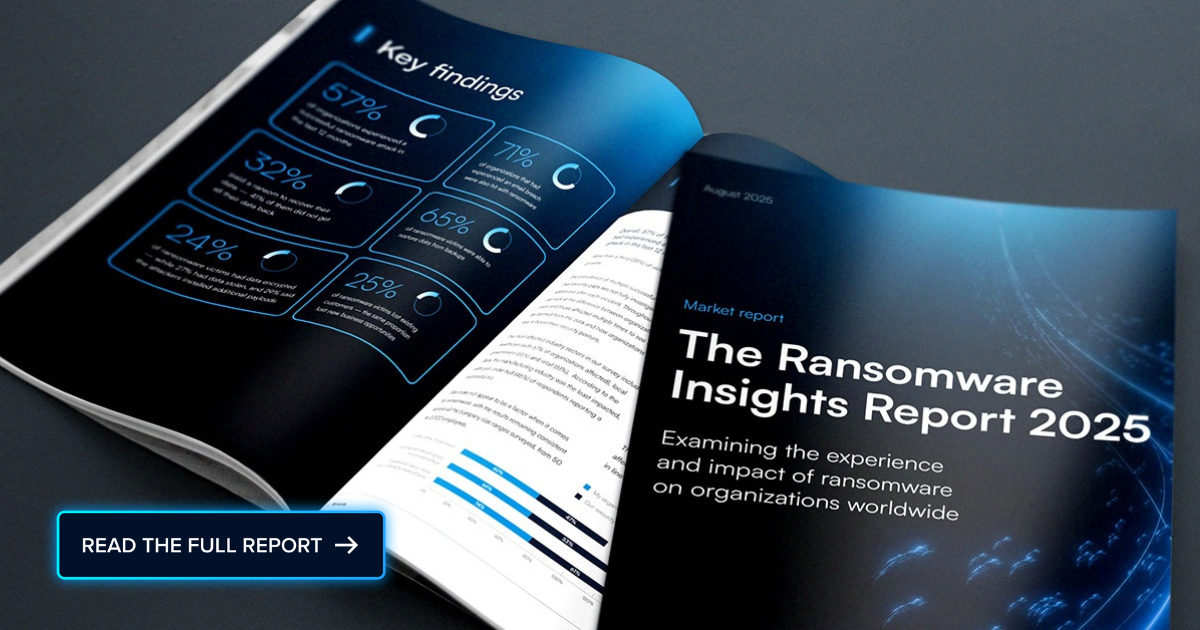
 While Thanksgiving has been a national holiday in the U.S. since 1863, the notion of setting aside a day to give thanks reaches as far back as 1623. Fast forward to 2025, and the tech landscape looks very different, but it’s still worth taking a moment to count our blessings. While every successful managed service provider (MSP) knows there’s no substitute for doing the work, there’s also an element of good fortune and providence that lies beyond anyone’s control.
While Thanksgiving has been a national holiday in the U.S. since 1863, the notion of setting aside a day to give thanks reaches as far back as 1623. Fast forward to 2025, and the tech landscape looks very different, but it’s still worth taking a moment to count our blessings. While every successful managed service provider (MSP) knows there’s no substitute for doing the work, there’s also an element of good fortune and providence that lies beyond anyone’s control.
In the past year, a handful of developments have proven especially beneficial for MSPs. They include:
Arrival of artificial intelligence (AI) agents
It’s been almost three years since ChatGPT first burst on to the IT scene, but the advent of AI agents adoption is about to become pervasive. Earlier generations of AI, based on copilots, required significant prompt engineering to fit workflows. In contrast, AI agents can perform tasks more autonomously, with human oversight still needed. As transformations unfold, MSPs will increasingly be needed to help build, deploy, govern, and secure these agents.
Renewal of tax cuts
Regardless of political leaning, the so-called “One Big Beautiful Bill Act”—the permanent extension of certain Trump-era tax cuts—has fueled IT investments. If federal taxes had risen, IT budgets would be tighter, particularly as some verticals remain soft and tariffs climb. While tax savings haven’t all flowed into IT, the overall spending outlook would be worse without them.
Cyberattacks become more sophisticated
Cybercriminals are leveraging AI to craft more effective attacks. While that’s troubling, it also drives demand for managed security services. MSPs and MSSPs play a critical role in a landscape where cybersecurity expertise remains scarce, and perfect security is elusive.
Data deluge continues to increase
The amount of data that organizations have been trying to manage has been steadily increasing, especially among organizations looking to train or customize AI models. In addition to requiring more storage systems, organizations also need to extend the reach of their existing workflows to secure and protect it. MSPs specializing in backup, recovery, and data management are increasingly in demand. AI systems used by enterprises generate even more data, heightening the need for robust data protection and governance.
Sovereign cloud rising
Europe is leading the move toward sovereign clouds, driven by concerns about tariffs and geopolitical considerations. Countries around the world are now keen to reduce their dependency on any IT equipment that might be subject to any control of a foreign government. The CLOUD Act passed in 2018 underscored the risk of dependence on foreign-controlled IT equipment. In the past year this issue has become a concern for countries that are worried this law will be used by the U.S. to strengthen its negotiating position by threatening to cut off access to critical IT services. The end result has been a sharp increase in the number of on-premises IT environments to which many cloud application workloads are now being repatriated. Naturally, many of those data centers running in various countries will be managed by MSPs that operate in specific regions.
The impact on MSPs
The degree of impact varies by MSP, but disruptions—whether technological, political, or economic—often create opportunities. The challenge is to marshal the resources needed to quickly capitalize on macro-level shifts before their full significance becomes apparent.
Photo: Rimma Bondarenko / Shutterstock
This post originally appeared on Smarter MSP.

